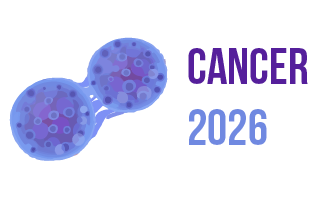4th International Conference on
Innovations and Advances in Cancer Research and Treatment
October 08-09, 2026 | Tokyo, Japan

Address: 68 Horinouchi, Narita, Chiba 286-0107, Japan
Cancer 2026

Akron Children’s Hospital, USA
Abstract:
Osteosarcoma (OS) is the most common high-grade malignant primary bone tumor in children and adolescents. Mainstay treatment strategies include surgical excision of the primary tumor and neoadjuvant/adjuvant chemotherapy employing methotrexate, adriamycin (doxorubicin), and platinum (cisplatin; together referred to as MAP). Efficacy of both these modalities is critical to successful treatment. Unfortunately, a high degree of genetic heterogeneity and chemoresistance compromises therapeutic outcomes in a substantial number of cases. Dysregulation of gene expression by aberrant CpG island DNA methylation is well established as a mechanism of tumor progression and has been shown to affect chemoresistance in pediatric solid tumors including medulloblastoma, neuroblastoma, and OS. Here, we examined targets of aberrant CpG island methylation in primary OS tumor samples, and identified methylation-associated transcriptional silencing of receptor interacting protein kinase-3 (RIPK3), a molecular regulator of the necroptosis programmed cell death pathway. We demonstrate the role of RIPK3 silencing in human OS chemoresistance in primary human OS samples and cell lines, and validate these findings in vitro using both forced expression and DsiRNA knockdown techniques. Findings demonstrate that enforced RIPK3 expression, in combination with cisplatin treatment, significantly decreased OS cell viability and increased phosphorylation of both RIPK3 and its target mixed-lineage kinase domain-like (MLKL), indicative of induction of necroptosis. These findings identify RIPK3 as an important mediator of chemoresistance in OS and a potential pharmacologic target to improve chemotherapy efficacy in other drug-resistant tumors.
Biography:
Hope C. Ball, completed her Ph.D. at The University of Akron, specializing in cell and molecular biology and bioinformatics. She completed her postdoctoral studies at Northeast Ohio Medical University. She is currently the Director of the Akron Children’s Hospital Hematology/Oncology Molecular Research lab, where her focus lies in elucidating the role of genetic mutations in pediatric brain tumors. She has published over 28 papers and spoken at numerous national conferences.
